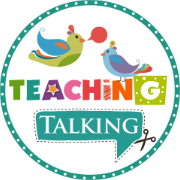
Speech Therapy Teamwork with Teachers: 5 Amazing Tips for SLPs
July 27, 2016 2 min read
Good Speech Therapy Teamwork with Teachers – How can I achieve that?
Speech therapy teamwork with teachers is a vital skill for all SLPs. When I refer to my students, I jokingly call them “my customers.” But to make sure my customers are happy, I need to work closely with their teachers. Some teachers just get the whole “speech” thing and other teachers really don’t care: they run the gamut. I’ve worked with all types and here’s how I achieve speech therapy teamwork with each one.
Be on time

Speech therapy teamwork starts as soon as you walk through the door. When you tell a teacher that you are going to put up a student at 10:30 am, be there at 10:30. If you aren’t going to be able to be there, shoot off a quick email. Being on time is a small thing, but when you are consistent, it builds trust. And what could be more important when addressing teamwork? It is professional to send an email when you can’t be there — and I give a reason (usually an IEP meeting).
Share your knowledge and connect

Many teachers will tell you their thoughts about a student in the hallway or when you are picking them up or dropping them off or even in the teacher’s lounge. In those little moments there is an opportunity to share your knowledge and connect with those teachers, even if it’s just a “I’ve seen that too” or “I’d like to do an observation” or “You are right!”
Educate when needed

Sometimes when you pick up students, teachers don’t want to release them or excuse them from a lesson. I get it and I understand the importance of academics — usually I can make up the session or we let it slide. But if it happens more than once, I have to educate the teachers that the students legally need their speech therapy on their IEP.
Fake it ’til you make it

Some teachers can rub you the wrong way and you wonder why they are difficult to work with! I don’t make it my mission to win them over — I don’t have time for that! But I do put a smile on my face and I fake it when I work with them. We both want our kids to succeed and since we have that in common, I fake a happy attitude when I have to. It works!
Just the facts

When working with the tough teachers, they don’t want to connect or learn more about you or speech therapy. The best thing for you to do is to stick to the facts. Emails and any time you talk, keep it short and simple. “I’ll be getting Joe at 12:30 on Mondays as usual.” No need to elaborate!
I know that my tips will help you work with both the supportive and the less supportive teachers. Communication is the key to teamwork and I wish you all the best!
Bio: Sarah Wu is a bilingual speech-language pathologist from Chicago, Illinois. She blogs at speechisbeautiful.com
Subscribe
Sign up to get the latest on sales, new releases and more …


